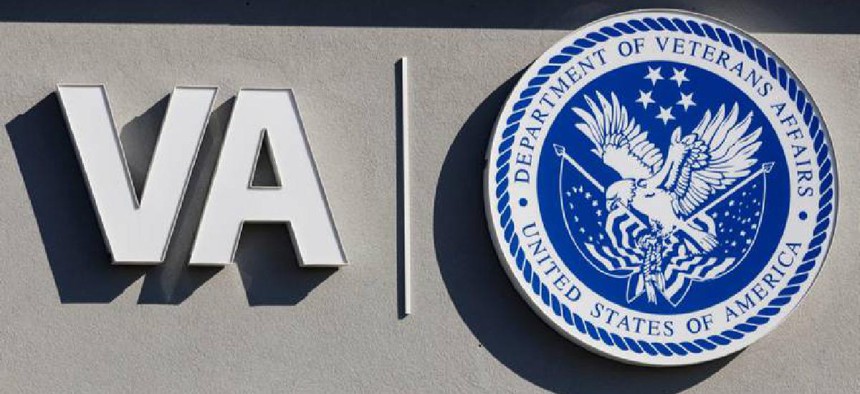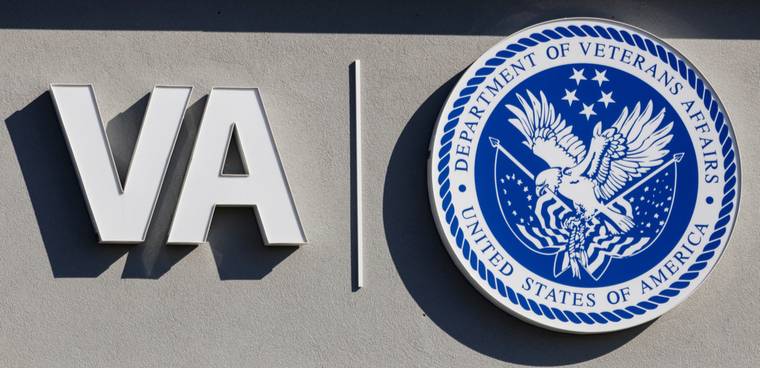VA expecting claims backlog to peak this summer

Recent additions to the backlog of veterans affected by Agent Orange are going to add to an expected spike in the backlog of pending benefits claims at the Veterans Benefits Administration, but agency officials are still aiming to get the levels closer to pre-pandemic numbers by the end of fiscal year 2022.

A VA facility in Cincinnati, (Image credit: Jonathan Weiss/Shutterstock.com)
The Veterans Benefits Administration is expecting its backlog of benefits claims to spike this summer as the office continues to reckon with the full impact of the pandemic and address claimants ushered in by Congressional mandates and the courts.
The backlog of claims is a chronic challenge that's long been the target of agency goals, but has doubled over the course of the pandemic.
The backlog of disability compensation and pension claims requiring a rating decision that have been sitting for over 125 days is currently at 191,700 claims, said Thomas Murphy, the acting under secretary for benefits at the VBA during a hearing held by the Senate Committee on Veterans' Affairs on May 12.
Agency officials are expecting the backlog to hit a "short-term spike" between 225,000 to 240,000 in August. The agency's goal is to get it down to around 100,000 claims by the end of fiscal year 2022, Murphy said.
The pandemic put a pause in one part of the disability claims process for vets used to determine eligibility, examinations called compensation and pension exams (C&P).
At the onset of the pandemic, the agency had to suspend these in-person medical exams and changed its procedures to allow vets to wait for in-person exams. In the meantime, VBA maximized the use of telehealth exams and acceptable clinical evidence processes that rely on clinical histories, Murphy said. The agency started offering in-person exams nationwide at the end of fiscal year 2020.
Now, a major problem for the VBA is veterans not coming in for their appointments, he said. Right now at least 58,000 haven't shown up. The office has been targeting vets via social media, phone calls and letters.
Retrieving the federal records necessary for the claims process also presented a hurdle when the National Archives and Records Administration closed during the pandemic, but the agency is now under pre-pandemic working inventory levels of records claims, Murphy said.
Moving forward, the agency wants to use recent funding from the American Rescue Plan to expand federal record scanning so that currently paper-based requests can be processed more quickly in the future, Murphy said.
Apart from the pandemic, other recent developments are also expected to add to the backlog and culminate in the August peak in the backlog, Murphy said.
In January 2021, Congress added new presumptive conditions stemming from exposure to Agent Orange, a chemical defoliant used in the Vietnam War, that the office will have to adjudicate for veterans. A court ruling in late 2020 mandating that the VBA re-adjudicate 62,000 claims dealing with vets affected by Agent Orange will also contribute to the spike.
Murphy said that, overall, the agency has handled the pandemic well.
"We're in the middle of a pandemic," he said. "That's a 100-year event … While it's a bad thing to have our backlog double, it's only doubled based on what we have. And that includes us shutting down for five months."
Still, other witnesses and Senators are skeptical.
Ryan Gallucci, director of the National Veterans Service of Veterans of Foreign Wars, said that the measure of the backlog itself isn't necessarily the right thing,
"Time has come to rethink how VA measures success," he said. "VA has seemed obsessed with the benchmark to the detriment of the veteran experience."
Shane Liermann, the deputy national legislative director at Disabled American Veterans echoed that sentiment, noting that accuracy and timeliness should be key.
"I'm also concerned that as VBA concentrates on speed, it risks sacrificing quality. Disabled veterans must have confidence that their claims will be fairly and accurately decided," said Sen. Jon Tester (D-Mont.).
Tester also pointed to recommendations from the Government Accountability Office that the VBA conduct more thorough oversight of its contracting workforce charged with doing C&P exams.
"In short, the VBA must make the process more veteran-focused and less adversarial," he said.



